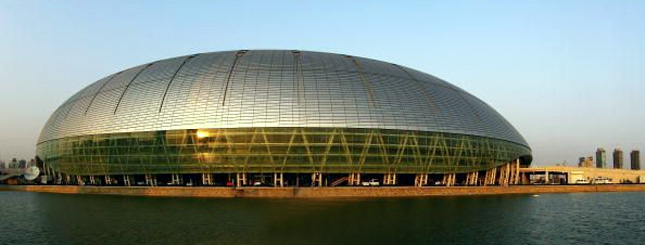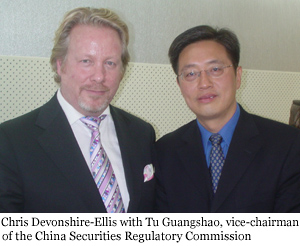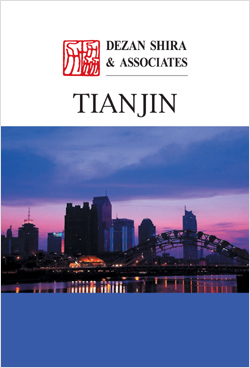Tianjin Cements Its Position as Beijing’s Port City

Aug. 21 – In our third look at Olympic cities, we focus on Tianjin, Beijing’s next door neighbor, and a powerful city in its own right. Second only to Beijing and Shanghai, Tianjin is deserving of its own provincial status; the local government here reports to the central government, not a provincial one. The city has invested close to US$1 billion in its own Olympics facilities, which have been home, like Shenyang, to the Olympic soccer matches. The new stadium holds 60,000, and includes six levels of seating, conference facilities in addition to minor sporting venues.
Tianjin is another ex-treaty port, with extensive German influences. As the main port servicing Beijing, it has also developed a large manufacturing base, with TEDA being one of the best known and better developed business zones in the country. China’s third largest port, Tianjin is also strategically important as being the distribution gateway for products manufactured in West China—its extensive rail links connect it directly to Xinjiang province.
Over the past 20 years, the city has concentrated mainly on developing its port and national distribution infrastructure. The city’s close links to Beijing have been taken for granted in the past, leading ultimately to curiously poor local transportation links, a situation now rectified by the development of an eight lane inter-city highway (two hours) and a new high-speed rail link, one of the fastest in the world, just recently opened.
Such transport links now make Tianjin an attractive commuter alternative to living in Beijing. With an attractive coastline, the development of marinas, fresh seafood and improving international flight connections to nearby Asian destinations in Russia, Japan and Korea, Tianjin is re-establishing itself as a major global hub.
 The city also has been earmarked as a potential location for a new China bourse, with possibly an SME-style listing capability commencing in the city as part of a new financial street footprint, currently under State level discussions. This is likely to start developing “towards the end of the year,” says Chris Devonshire-Ellis, senior partner of Dezan Shira & Associates, who has been involved in a series of meetings with Tu Guangshao, the vice-chairman of the China Securities and Regulatory Commission on the project.
The city also has been earmarked as a potential location for a new China bourse, with possibly an SME-style listing capability commencing in the city as part of a new financial street footprint, currently under State level discussions. This is likely to start developing “towards the end of the year,” says Chris Devonshire-Ellis, senior partner of Dezan Shira & Associates, who has been involved in a series of meetings with Tu Guangshao, the vice-chairman of the China Securities and Regulatory Commission on the project.
This follows on from the successful redevelopment of Beijing’s Financial Street, a report of which can be found in the current issue of the China Briefing magazine.
Dezan Shira & Associates has  handled investment into Tianjin since 1992 and has a long and mutually prosperous relationship with the city. TEDA, the largest local free trade zone, has long been clients, working together with the firm for more than a decade. Given the city’s strong German history, the firm’s German desk is also charged with responsibilities for Tianjin, under the experienced eye of senior associate, and China investment lawyer, Richard Hoffmann. Sabrina Zhang, the practice’s regional partner, also has extensive work experience in advising clients on tax matters in the city. As is always the case, local knowledge and experience count.
handled investment into Tianjin since 1992 and has a long and mutually prosperous relationship with the city. TEDA, the largest local free trade zone, has long been clients, working together with the firm for more than a decade. Given the city’s strong German history, the firm’s German desk is also charged with responsibilities for Tianjin, under the experienced eye of senior associate, and China investment lawyer, Richard Hoffmann. Sabrina Zhang, the practice’s regional partner, also has extensive work experience in advising clients on tax matters in the city. As is always the case, local knowledge and experience count.
Please click on the image to download the Dezan Shira & Associates Tianjin investment guide.
For questions related to investing in Tianjin, please contact Richard Hoffmann, Dezan Shira & Associates regional manager.
- Previous Article Capitalism Prevails at Communist China’s Olympics
- Next Article China Attracts Highest Level of Venture Investment in Five Years









